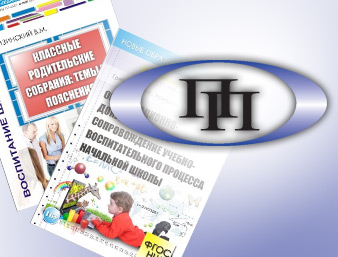
Teacher’s social education activities and pedagogical behavior as essential forms of professional activities
Lizinsky, Vladimir M.
[about]
External forms of pedagogical intervention, as well as verbal and non-verbal ways of influence, may and occasionally have a positive, negative or no influence on children.
Clothes and accessories, haircut, manner of walking, posture, glances, head inclination, length of pauses, specific looks at children, smiles, expression of anger, handwriting and signature, grade color and shape, exhausted indifference, personal adornments, favorite expressions and quotes – we may still continue the list of things which make an inconspicuous influence on children by attracting or pushing them away and, at times, greatly affecting their behavior, attitudes, views, and their future.
Throughout their entire professional career some teachers are unable or unwilling to get rid of some clownery, cheap focus tricks, mockery or toadyism used with the sole purpose to be liked by children. However, all these are external forms of influence, which may keep the attention of immature souls for a short time, but they will most probably fail to attract intellectually developed and thoughtful teenagers.
Even before the teacher starts the class or applies various teaching strategies and techniques, his or her personality in the whole range of its dimensions may be appealing or equally repulsive to children. Great philosophers and educators used to say that a teacher must be young and beautiful. Of course, they naturally meant the teacher’s state of mind and psyche.
Let us discard classical didactics and embrace false innovations
Lizinsky, Vladimir M.
[about]
An increasing number of teachers have completely excluded social education from their professional activities. This was caused by a number of reasons. It was not only because the Unified State Exams as a given reality does not need social education and interaction with students. Nor was it only because the knowledge-centered instruction paradigm with its drills, orders, pressure, requirements, unsatisfactory grades, and cruel abuse of students’ memory does not need affectionate and friendly attitude towards children. Nor was it only because the sophisticated administrative mind replaced social education as a system with a set of major and minor activities. Nor was it only because the teacher has quickly realized that there is a huge gap between talks about spiritual, moral and patriotic education, on the one hand, and real systemic approach to social education, on the other. Nor was it only because of standardization, narrow outlook, fatigue factors, professional backwardness or fear to fail tests. All these and other reasons put together make it possible to easily eliminate both with social education systems and social education as a goal-oriented systemic process fully encompassing school life and work.
What is left for any given school? That is just to avoid obvious cases of juvenile vulgarity or offence while pretending at the same time to possess active school self-governance, initiatives, social practices, students’ creativity and leadership. Fighting against Article 278, the school must not only kiss boots but also be able in cooperation with some powerful students’ parents from law enforcement agencies, to hide teenagers’ crimes or offensive social behavior.




